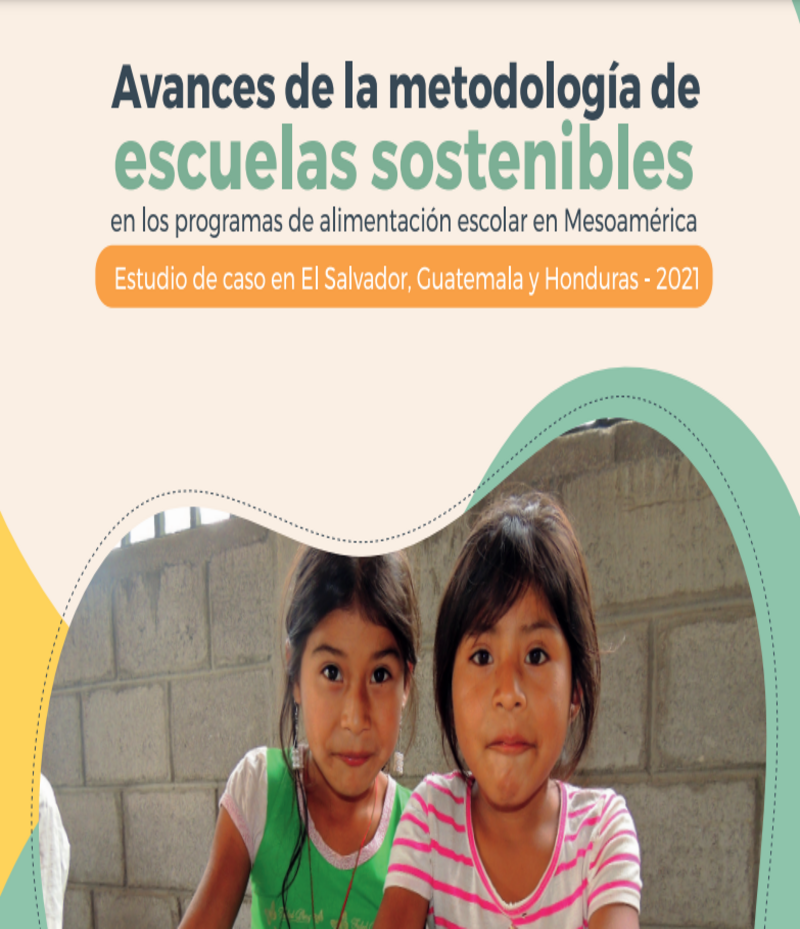Exchange of experiences in family farming brings together more than 100 participants from 17 countries

Presentations addressed successful experiences in Brazil, El Salvador, Guatemala, and Peru. Paulo Beraldo Brasília, Brazil, March 26, 2024 – More than 100 professionals linked to school feeding programmes (SFP) from 17 countries in Latin America and the Caribbean participated on March 21 in an online exchange of experiences on mechanisms to strengthen public procurement in […]
Brazil-FAO Cooperation plans actions in favor of the consolidation of SFPs
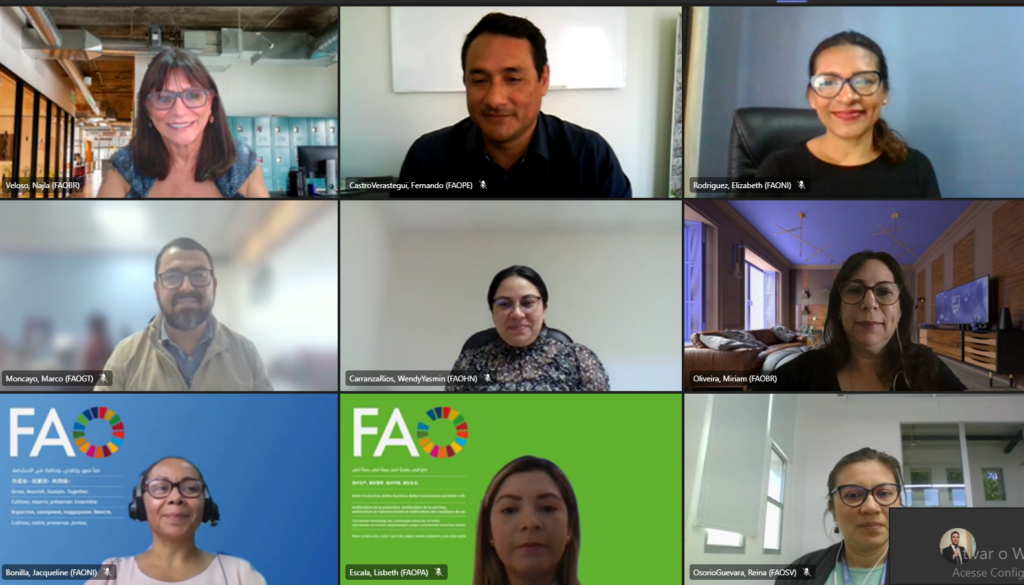
Project Consolidation of School Feeding Programmes in LAC organized meeting with 6 countries of the region Paulo Beraldo Brasília, February 10, 2023 – The project Consolidation of School Feeding Programmes in Latin America and the Caribbean held on Tuesday, February 7, the first meeting with Latin American countries to discuss the support of the Brazil-FAO […]
Event presents school feeding governance experiences from El Salvador, Brazil, Guatemala and Paraguay
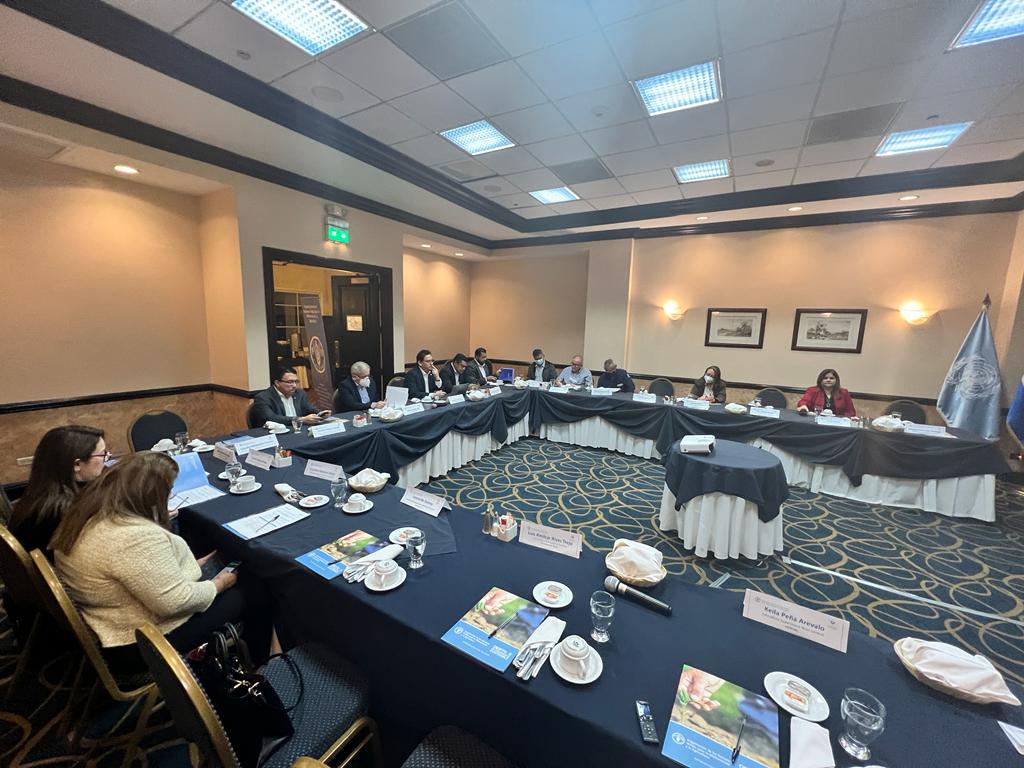
Hybrid dialogue included Ministers of El Salvador and representatives of the governments of three LAC countries December 13, 2022. The main actors involved in the school feeding policy of the government of El Salvador met to discuss the governance of these programmes in Latin American countries. In addition to the Ministers of Education and Agriculture […]
“We want a society that eats for wellness, not for publicity”

Carolina Vanesa Cárcamo, a student from El Salvador, recalls her experience with food and nutrition education Paulo Beraldo The student Carolina Vanesa Carcamo, from Izalco, El Salvador, is clear about the role of food and nutritional education in her life and in the lives of her classmates. In an interview for the Sustainable School Food […]
RAES member countries strengthen commitment to school feeding in the region
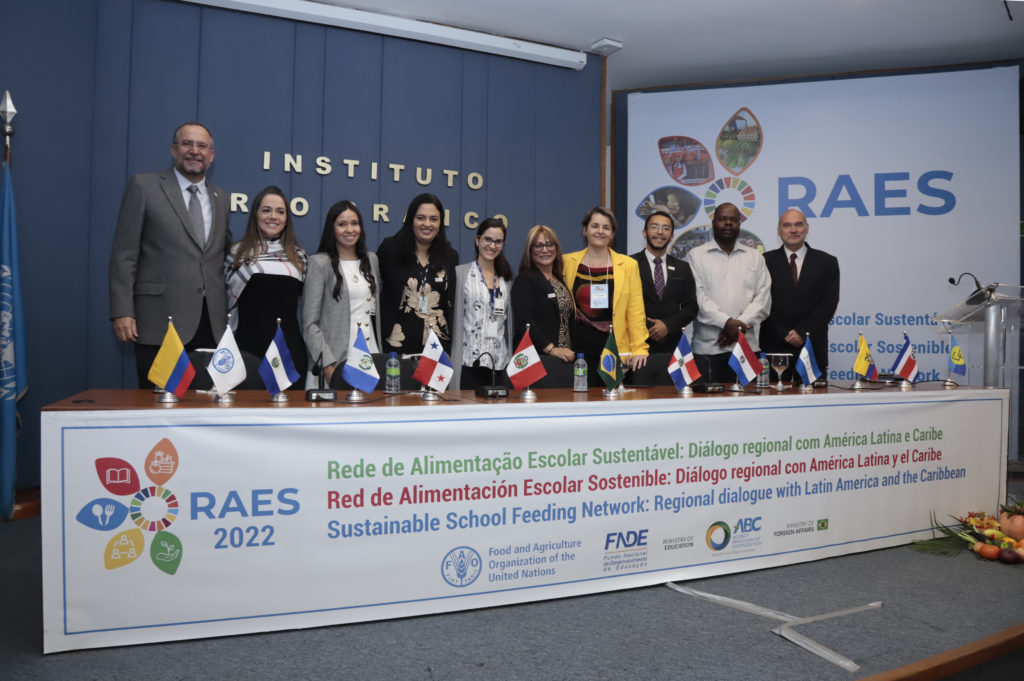
With the participation of 10 countries and international institutions, the regional technical committee of the RAES Network was officialized. Brasília, September 12, 2022 – With the presence of representatives from 10 Latin American countries and Caribbean institutions, gathered in the city of Brasília, Brazil, and the virtual participation of more than 300 people, the Regional […]
Mitigating the effects of the COVID-19 pandemic on food and nutrition of schoolchildren
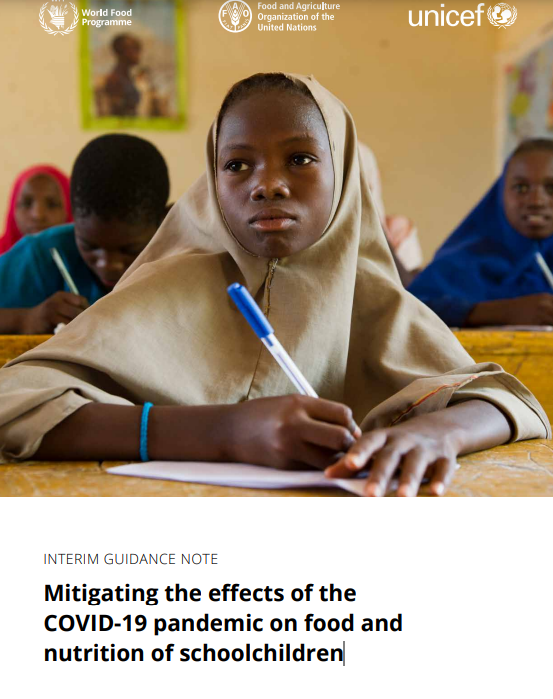
While cases of COVID-19 appear to be fewer among children (and symptoms generally milder), national responses to the pandemic can have important consequences for child nutrition and educational outcomes. Nearly 1.5 billion children – more than half of the world’s student population – are being kept away from school due to pandemic response measures. Nationwide […]
Legal Guide on school food and nutrition
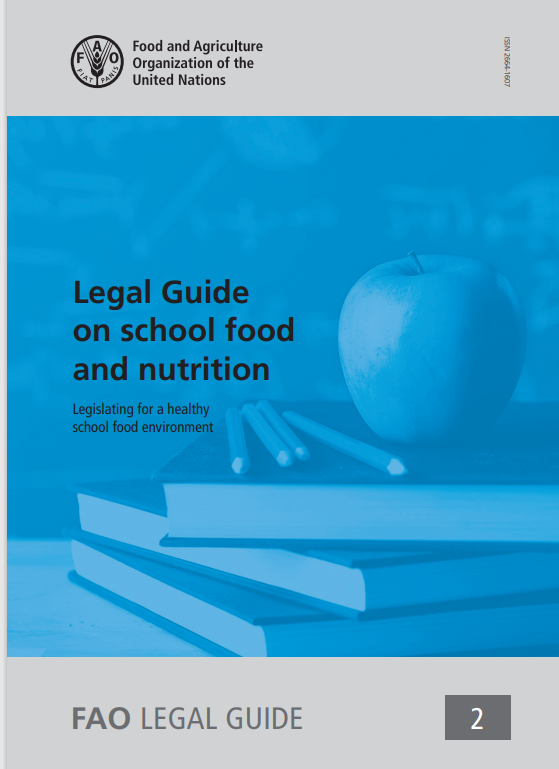
A solid international consensus has emerged on the importance of nutrition for children’s development and well-being. At the Second International Conference on Nutrition (ICN2), the Member States of the Food and Agriculture Organization of the United Nations (FAO) and the World Health Organization (WHO) committed to developing policies, programmes and initiatives to ensure healthy diets […]
Including gastronomy in the School Feeding Programme – A necessary change to guarantee children’s right to healthy, tasty and waste-free food
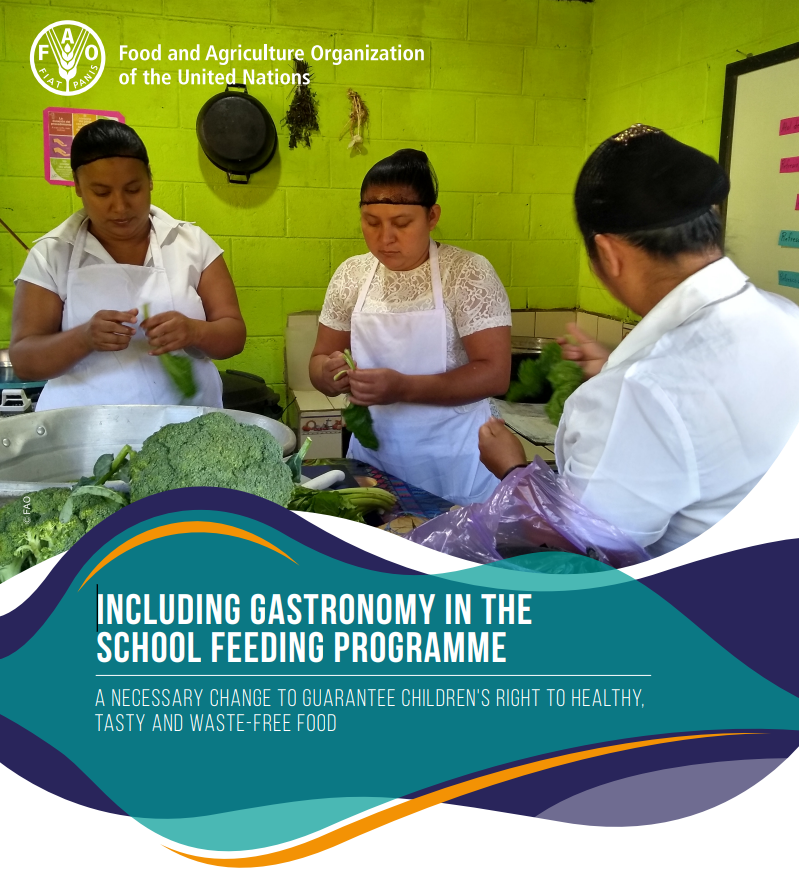
Each year, the Guatemalan State invests about 1 869.2 million Quetzals (USD 245 million) in the national School Feeding Programme (PAE, by its acronym in Spanish), which feeds 2.4 million children. This research estimates that, by including gastronomy in the PAE, it is possible to prevent in a school year (180 days), the waste of […]
Capacity needs assessment tool – School-based food and nutrition education
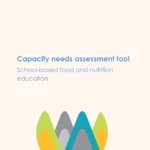
The capacity needs assessment tool is meant to be used by national and local groups as a foundation for the design of school-based food and nutrition education capacity development strategies. The tool builds on FAO’s experience and expertise in capacity development, and adopts a broad approach that not only assesses capacities at the individual level, […]
Avances de la metodología de escuelas sostenibles en los programas de alimentación escolar en Mesoamerica
